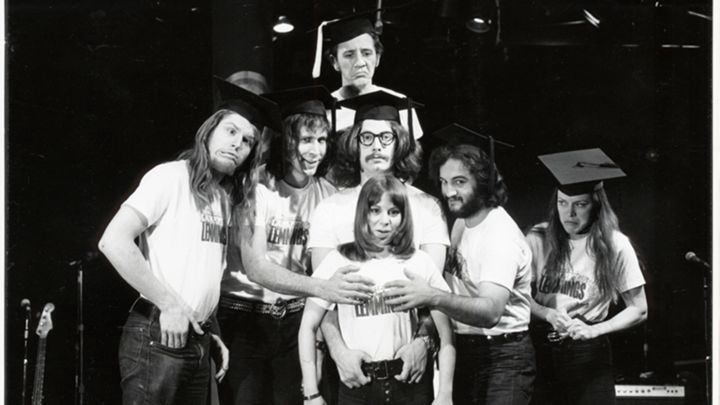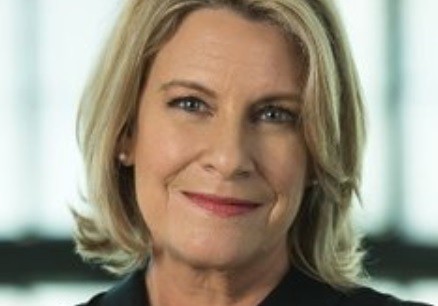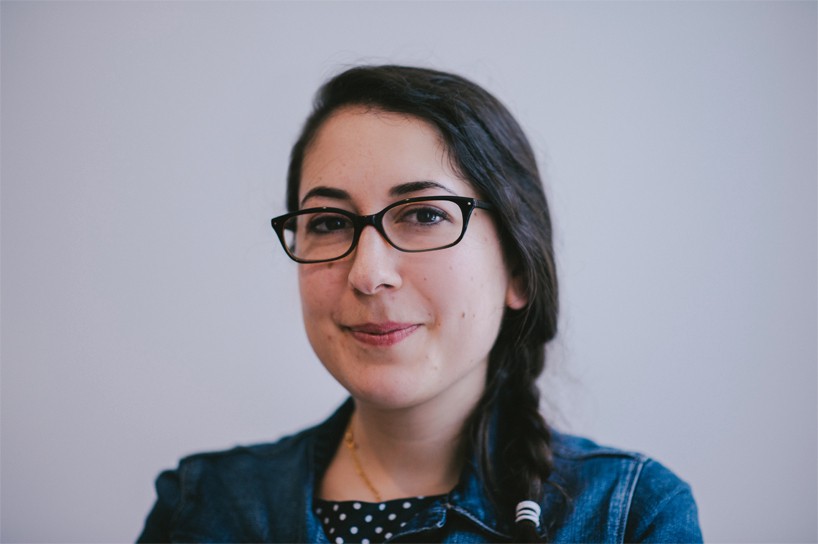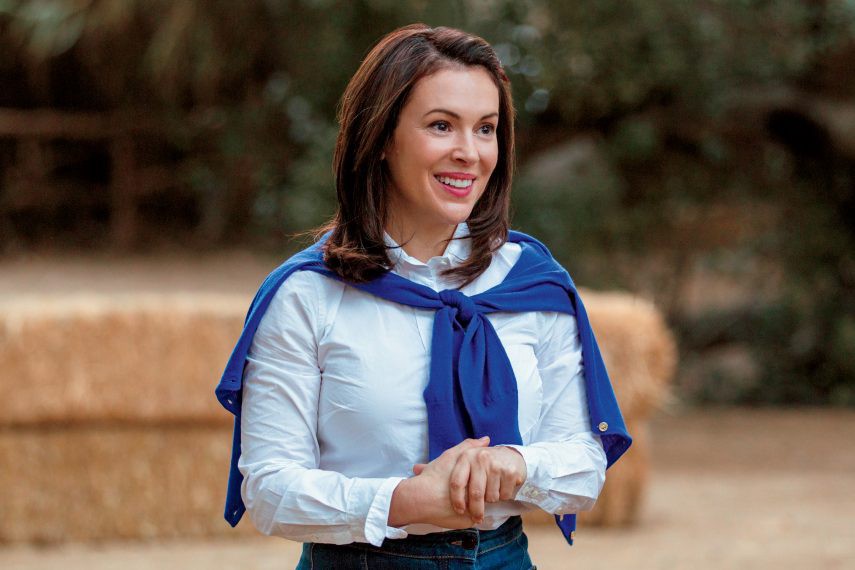Susan Bedusa is currently Senior Vice President of Production and Development at 4th Row Films, where she sets up development and distribution deals with various networks and studios. She also collaborates with writers and directors on new ideas for TV and film, working with them from development through distribution. (Press materials)
Drunk Stoned Brilliant Dead will premiere at the 2015 Sundance Film Festival on January 25.
W&H: Please give us your description of the film playing.
SB: Drunk Stoned Brilliant Dead is a film about the story of the National Lampoon. It follows two Harvard graduates who start the first humor magazine for adults, and turn it into the most prolific comedy empire of the 1970’s until success and excess begin to challenge its existence.
To me, the film is really about a very special incubation of talent and a moment in time where comedy began to make a actual impact on the way people saw the world.
W&H: What drew you to this story?
SB: When the director, Douglas Tirola, brought up the idea of making this film, I didn’t know much about the National Lampoon magazine but I did know that I could recite every line to all four Vacation movies. My knowledge of The Lampoon was limited outside of that. I knew Animal House and that many comedy icons were associated with The Lampoon. I also knew how passionate Douglas was about making this film, which generally leads to good things for us.
I remember the first time we were out to lunch in Greenwich Village and he brought a stack of Lampoon magazines for me to look through. I got it immediately. These writers and artists were using comedy to talk about very important issues that were going on in the 70’s, and doing it in a way that made readers pay attention. As I learned more about the Lampoon — the vast talent that came out of it, the ups and downs of their business, and the freedom they were afforded — I knew this was a story that needed to be told.
W&H: What was the biggest challenge in making the film?
SB: As the producer, one of the biggest challenges was in making the initial deal to tell this story. There were several other filmmakers at the table at the time we approached the Lampoon, and we had to make a case for ourselves and our company against some very well-known entities. We also had to convince multiple incarnations of the Lampoon that we were the right people to take this on. I really believed that our vision was superior to anyone else’s, and luckily the people at the Lampoon did as well.
I worked on putting that deal together for over a year. I remember laying on my couch with strep throat at midnight on a Sunday negotiating the final details of the contract and just being so relieved in my feverish, delirious state. Once the deal was closed, I knew there would be other challenges, but there was no doubt in my mind that we would get the film done.
W&H: What do you want people to think about when they are leaving the theatre?
SB: The film is not what would be considered “politically correct,” especially by today’s standards. The artists, writers, and management behind the Lampoon took chances, they were outrageous, and they made a difference. Today, people are afraid — and rightly so. What happened to Sony with The Interview and the horrible recent events in Paris — these are very real threats against freedom of speech. The Lampoon offended some people, but they were important because they made it okay to talk about these big issues, whether political, racial, sexual, or otherwise. They opened the conversation.
Today, Americans have to constantly worry about being sued or slaughtered for saying the wrong thing to the media. I want people to leave the theatre and realize that sometimes, saying the wrong thing is the most politically correct thing you can do.
W&H: What advice do you have for other female directors/producers?
SB: I’m not sure that this advice is for female filmmakers or filmmakers in general, but my advice is to be nice and get over yourself. I have come across a few filmmakers, both male and female, who just take themselves so painstakingly seriously and maybe that’s the wrong thing to say here, but it’s bizarre. Take the work seriously. Take the topic of your film seriously. Take your craft seriously. But don’t take yourself so seriously.
And be nice. We are lucky to be making movies for a living. Most people don’t have the opportunity to do something they love every day and get paid for it. Enjoy it, because even on the worst day at work, you are still making movies and that’s awesome.
At 4th Row, we operate on the “Life Is Too Short” philosophy, which is to say that even if the project is good, if someone is so unpleasant that you don’t want to spend an extended period of time with them, it’s just not worth it. When you make a film, you spend years with the filmmaking team, and who wants to spend years being miserable? In that case, we might as well get real jobs.
W&H: What’s the biggest misconception about you and your work?
SB: My body of work is diverse and looking at the films, one wouldn’t think that the same person produced them. We make bigger, more commercial movies, like Douglas Tirola’s Hey Bartender, which played close to 100 theaters and had 40 red carpet premieres. And we make smaller, more intimate and artful movies like Robert Greene’s Actress which was nominated for several prestigious awards and has received the highest level of praise in the media.
Each project is different and each serves a different purpose. People who know Hey Bartender most likely have never heard of Actress. I am proud of both films, and they were both a success for our company, the directors, and myself.
I think think there are big misconceptions about documentary film in general — that they are not “real movies.” My team at 4th Row Films makes real movies. We have released nine feature documentaries and they all have a beginning, middle, and end. They all have tension and characters, and they are all entertaining to watch. They play in theaters. They are acquired by film companies. That’s a movie.
It’s a very exciting time for documentary film, and I hope that several of our films help in some small way to bring them beyond “documentary people” and more into the mainstream.
W&H: How did you get your film funded? Share some insights into how you got the film made.
SB: Douglas and I began this journey funding the film ourselves out of our company. We begin all of our films this way, because we believe that research is best done on camera. We had a few interested private investors early on, but no one that was really able to see the potential of the film enough to give it the resources we needed to make it the right way, so we embarked on making it ourselves.
We shot for about a year, completing some of the most important interviews for the film and looking for archival footage — but at that point, we realized we needed a financial partner to keep moving. We took our footage, put together a 2-minute teaser and brought it to Molly Thompson and A&E Indiefilms/History Films. Molly immediately understood what we were trying to do, and was on board with us from that point on.
The details of how that finally came together about a year later would take up more than a couple of paragraphs but the short of it is that she was the hero. Not only did she come in as a financial partner, but as someone who would guide us throughout the entire process that got us where we are now.
W&H: Name your favorite woman-directed film and why.
SB: My favorite woman directed film is Jesus Camp by Heidi Ewing and Rachel Grady. I saw that film at a festival and left the theater feeling completely invigorated about documentary film and what was possible. It is both a fascinating and terrifying look at a subculture that, as an Iraqi-Libyan Jew from Connecticut, I would have never known existed.
Since then, I’ve had the chance to meet and get some advice from them when we were invited to participate in the Tribeca Institute A&E Indiefilms Story Lab. What I found out was that, on top of being brilliant filmmakers, they are just awesome, happy, fun people who seem to want to see other filmmakers succeed. To me, that is super important. It’s the way Douglas and I try to run our company.







